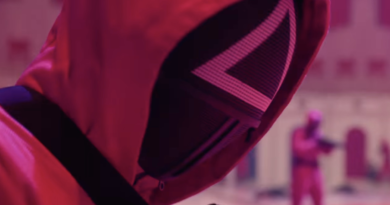Star Wars Outlaws is the solution to Ubisoft’s open-world woes
There was a moment in Massive Entertainment and Ubisoft’s Star Wars Outlaws when I was scouring the depths of a creepy cave, just after finishing a dogfight in space and winning a card game in a boozy cantina, that the game clicked for me. The usual Ubisoft drudgery, where icons on maps become weights on the brain, was gone. Instead, there was an organic, self-determined flow as to why I chose to leave the frozen wastes of one planet to dig beneath the surface of another.
Here was a game reacting to my actions: it was an open-world experience I’d never encountered before.
I felt elated at this realization, with things happening as a result of the consequences of my own gameplay decisions. The game was organically adjusting to my moment-to-moment play. It works because of two clever systems: Outlaws’ faction system where you either grow or destroy your reputation with various criminal syndicates, and Outlaws’ unique approach to ability upgrades.
Kay Vess, the protagonist, forms relationships with all sorts of shady syndicates, all with their own constantly conflicting agendas. As a freelancer, Kay can do missions for any and all of them, but sometimes stealing documents for one faction means undermining an ongoing scheme for another. This raises Kay’s reputation for one and lowers it for the other.
Higher reputation nets you discounts, access to syndicate-controlled areas, special gifts, and so on. Lower results in the opposite, primarily restricted access to areas and antagonistic reactions from members of the syndicate.
As an example, the result of a recent mission for the Hutt syndicate meant that if I wanted access to the Pyke syndicate area, I’d have to sneak in. Or, I could find ways to raise my reputation with the Pykes. A new mission centered around stealing or buying an item in the currently restricted Pyke area on the jungle planet of Akiva. Before embarking on the Akiva mission, I decided to improve my reputation with the Pykes. This took me to the underground caves on a distant moon of Toshara because the Pykes wanted an item there.
The reason I wanted access to the Pykes in the first place was related to Kay’s abilities. Outlaws ties ability upgrades to collecting specific rare gear and performing certain actions; there is no XP to speak of. I was trying to upgrade Kay’s silent takedown, allowing her to stealthily take out harder enemies instantly. Upgrading that skill required stealing or purchasing that item in Pyke territory. And since my reputation was so bad, I was now on a moon doing a mission for the Pykes to improve things.
This push-and-pull meant that I was traveling to distant planets and choosing missions based on what would improve my moment-to-moment play. I wasn’t following a preordained path, or filling out a checklist, but approaching the world on my own terms.
The game is structured like this: open-ended but with clear trajectories depending on your goals, cleanly doing away with the usual Ubisoft open-world bloat. Whereas so many of the developer’s other big games, like Far Cry or Assassin’s Creed, often felt like ticking boxes, Outlaws provides a slicker but meatier canvas of play due to this depth and variety while allowing player choice to dictate action.
The game seems to speak directly to so many players’ frustration at the size and drudgery in Ubisoft games, as seen in, most recently, Assassin’s Creed: Valhalla. Outlaws really does feel as if my experience and choices not only matter but are part of the system. The world reacts, alignments shift, my choice of task changes. While there are legitimate complaints about its stealth system feeling underbaked and missions effectively repeating themselves, my own experience was one of constant joy, due precisely to the ebb and flow of the systems I could play with.
I didn’t realize how badly I wanted an open world that was actually this reactive until I played Outlaws. Yes, there’s some jank and instability, but by Picard’s beard, it is a blast to play with these systems, with the freedom ripe for manipulation of a gunslinging outlaw like Kay.




